In a rapidly changing, globalised world education can help young adults to understand life beyond their own national borders. Here, in our thirtieth guest blog post, Alex Monk, School Linking Officer at Plan UK, discusses how FrontlineSMS is being used to support a project called Plan-ed. This project links schools across the globe, and thus helps deepen young people’s understanding of our world today.
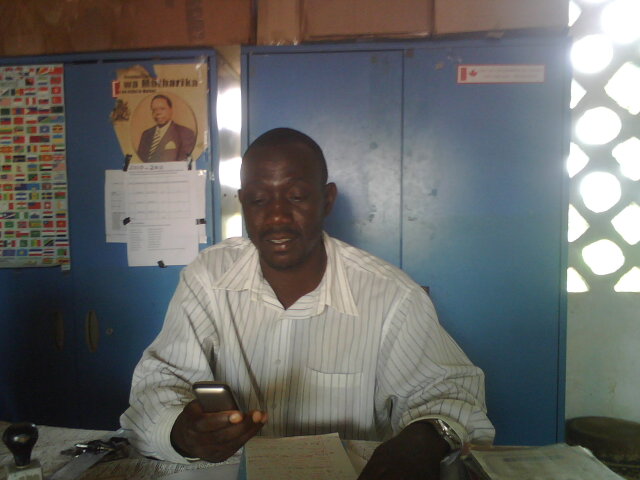
“The Plan-ed School Linking programme has been running since 2008 and connects young people aged between 7 - 14 in the UK with their counterparts in China, Kenya, Malawi, Senegal and Sierra Leone. Schools exchange pen-pal letters, e-mails, videos and local artifacts. The Linking programme also allows children to share examples of work on mutually relevant topics such as climate change, successful enterprise and Children’s Rights. This helps the young people involved to learn about others their age living in different areas of the world; to recognise their similarities and appreciate their differences.
The Plan-ed project uses a variety of communication methods to help linking schools stay in touch, including sending post, video conferencing, interaction through their website, and more recently text messaging. Over the past six months schools in Malawi, Sierra Leone and the UK have been using FrontlineSMS to communicate with their partner schools. The schools use FrontlineSMS to send texts confirming receipt of posted letters and material. They also exchange text messages about ideas for new projects, and to organise travel for teacher exchanges as part of the linking project, and even to wish each other happy holidays.
The videos here show Headteachers from two schools who have been linked together as part of this Plan-ed project.
Orphent Kawonga (Zombwe School in Malawi) and David Lodge (Countess Anne School in the UK) have been on teacher exchanges to each others schools, to help strengthen their link. Here they discuss the benefits of the use of FrontlineSMS to support their link projects.
Ophent from Zombwe school on School Linking and FrontlineSMS from Plan UK on Vimeo.
David Lodge, Headteacher Countess Anne School from Plan-ed on Vimeo.
The benefit of using FrontlineSMS for the schools involved is that they have a way to regularly stay in touch with each other, and keep a record of their communications. FrontlineSMS has proved particularly helpful in the schools in Malawi in which the internet is not easily accessible, and the post can take a while to get through. Sending and receiving text messages is a quick and convenient way to stay in touch that helps the teachers maintain momentum in the linking school project, thus building sustainable connections between the schools.
Moving forward teachers in Malawi, Sierra Leone and the UK will continue using FrontlineSMS to support their connections with their Link schools. In addition, Plan-ed hopes to explore further ways to utilise FrontlineSMS. For example we are investigating the idea of using FrontlineSMS for more operational purposes; to help Plan-ed’s country coordinators stay in touch with the schools more regularly. It really is a great help to have a piece of technology such as FrontlineSMS, which helps facilitate quick communication in otherwise hard to reach areas of the world.”
For more information on Plan-ed visit: http://www.planschoolslink.org/









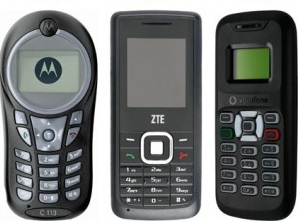


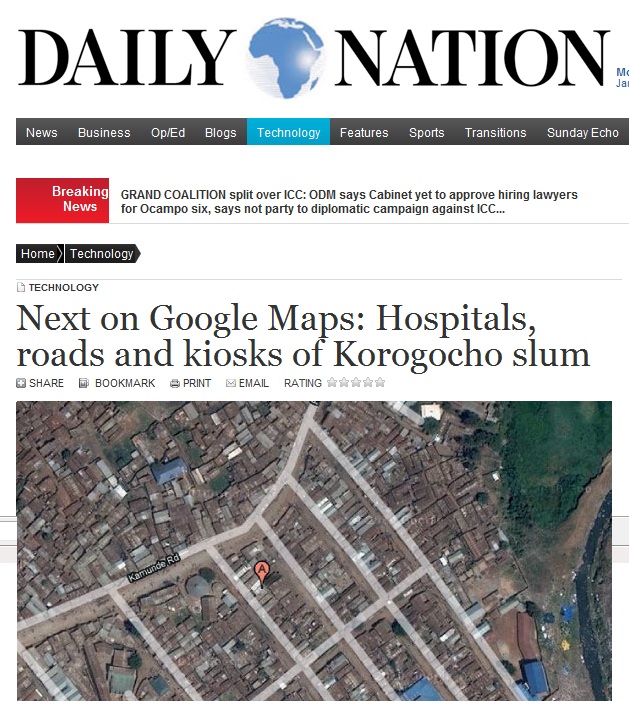

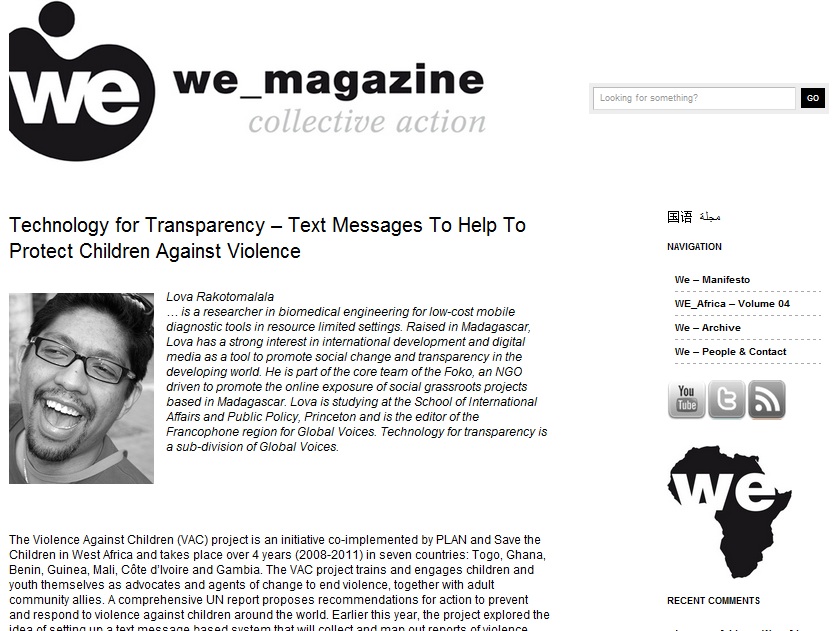

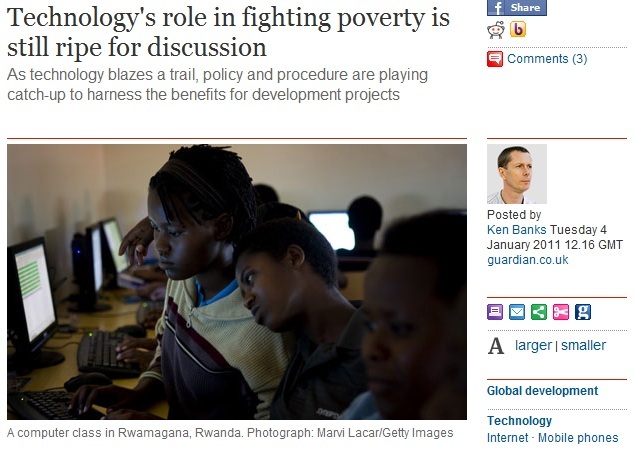


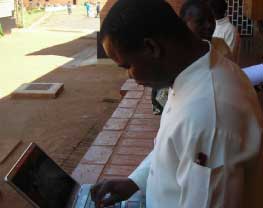 FrontlineSMS:Medic was preceded by two independent projects, Mobiles in Malawi and MobilizeMRS. Josh Nesbit initiated Mobiles in Malawi in the summer of 2007, working at a rural Malawian hospital that serves 250,000 patients spread 100 miles in every direction. To reach remote patients, the hospital trained volunteer community health workers (CHWs) like Dickson Mtanga, a subsistence farmer. Dickson had to walk 35 miles to submit hand-written reports on 25 HIV-positive patients in his community. The hospital needed a simple means of communication, and in the summer of 2008 Josh returned to the hospital with mobile phones and a laptop running FrontlineSMS to provide it.
FrontlineSMS:Medic was preceded by two independent projects, Mobiles in Malawi and MobilizeMRS. Josh Nesbit initiated Mobiles in Malawi in the summer of 2007, working at a rural Malawian hospital that serves 250,000 patients spread 100 miles in every direction. To reach remote patients, the hospital trained volunteer community health workers (CHWs) like Dickson Mtanga, a subsistence farmer. Dickson had to walk 35 miles to submit hand-written reports on 25 HIV-positive patients in his community. The hospital needed a simple means of communication, and in the summer of 2008 Josh returned to the hospital with mobile phones and a laptop running FrontlineSMS to provide it.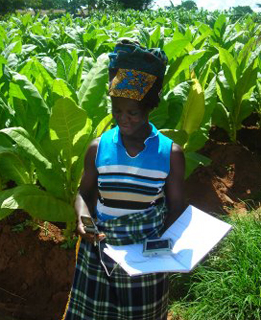 In six months, the pilot in Malawi using FrontlineSMS saved hospital staff 1200 hours of follow-up time and over $3,000 in motorbike fuel. Over 100 patients started tuberculosis treatment after their symptoms were noticed by CHWs and reported by text message. The SMS network brought the Home-Based Care unit to the homes of 130 patients who would not have otherwise received care, and texting saved 21 antiretroviral therapy (ART) monitors 900 hours of travel time, eliminating the need to hand deliver paper reports. You can read more about this pilot in the
In six months, the pilot in Malawi using FrontlineSMS saved hospital staff 1200 hours of follow-up time and over $3,000 in motorbike fuel. Over 100 patients started tuberculosis treatment after their symptoms were noticed by CHWs and reported by text message. The SMS network brought the Home-Based Care unit to the homes of 130 patients who would not have otherwise received care, and texting saved 21 antiretroviral therapy (ART) monitors 900 hours of travel time, eliminating the need to hand deliver paper reports. You can read more about this pilot in the 

